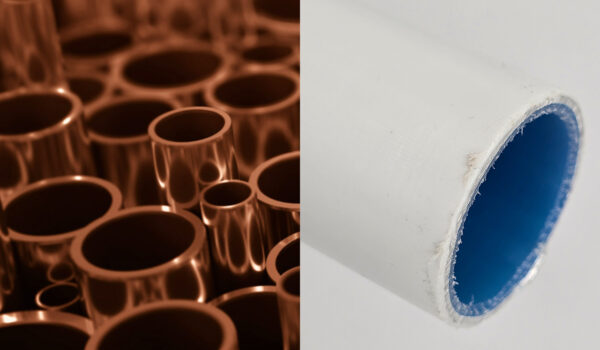The safe passage of medical gases to patients in a critical condition means no less than life or death. When a new medical facility is built, construction contractors have an ethical imperative to ensure the pipes that carry these vital gases are fit for purpose.
The material used to make medical copper pipes can have a heavy bearing on their overall quality, and the special properties of copper, mark the metal as the material of choice for contractors as they look to fulfil their duty of care to patients.
The benefits of copper pipes in medical settings
With such high stakes, healthcare construction contractors must think carefully about the medical gas piping they choose to use. For those looking to maximise patient safety and minimise maintenance, copper pipes are the clear choice.
Medical copper pipes are naturally antimicrobial
Various studies have confirmed the antimicrobial properties of copper. When microbes land on the copper surface, oxidising copper atoms are released in response. These pull electrons from the atoms that make up the microbe’s cell wall, ultimately killing the microbe.
Copper’s natural defence against bacteria, viruses and fungi ensures medical gas remains sterile and safe for patients. Sealed caps on medical copper pipes provide an added layer of protection against contamination.
Medical copper pipes are non-corrosive
Copper is well known for its resistance to corrosion. Compared to plastics and other metals, copper is incredibly robust and makes for an excellent material for medical gas piping. Its non-corrosive qualities facilitate safe water distribution and ensure the pipes are long-lasting.
Learn more about copper’s unique properties below.
Copper vs plastic pipes in medical settings
The advantages of copper pipes over plastic pipes are clear, with the latter simply not fit for purpose in medical settings. While medical copper pipes offer a natural defence against bacteria and viruses, plastic plumbing carries the risk of contamination if not cleaned regularly.
Plastic pipes are also less robust than copper pipes and more likely to become brittle over time. As a result, plastic tubing generally offers a shorter life span than copper pipes and is likely to require more maintenance work.
With a much lower melting point of 160–210°C, plastic also presents a significant fire hazard, and the material has the potential to release toxins when exposed to high heat. Furthermore, plastic piping expands and contracts up to 10 times more than copper when exposed to intense heat.
Learn more about the benefits of copper over plastic below.
The medical practitioner’s choice
Owing to its reliability and natural antimicrobial resistance, copper is widely considered the gold standard for medical gas piping. It’s why medical construction contractors around the world are now pushing ahead with medical copper pipes, secure in the knowledge that they’re using the very best material for the job.

